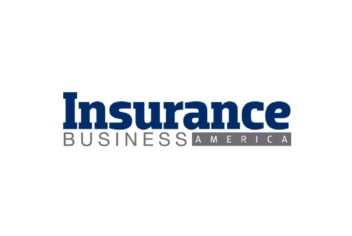There are more seniors in America than ever before, which means that the mobile meal services that seniors have always depended upon are more essential than ever.
Local senior meal programs ensure that seniors — especially those with mobility issues, health concerns, and other challenges — have access to healthy, nutritious food.
Not only do these regular deliveries help enable seniors to continue living independently in their own homes, but they also provide a way for them remain connected with their communities and to reach out for help, if it’s needed.
Just as each community’s seniors have different needs, the nonprofits that support them have different needs from their insurance.
So, what do nonprofit senior meal programs need most from their insurance?
Meet some of the senior meal programs that NIA insures.
We talked with several senior meal delivery programs that NIA insures about their missions — and how NIA’s partnership has helped them keep their doors open and continue serving.
In their own words…
Creekside Pay-It-Forward (Durham, NC)
“Creekside Pay-It-Forward (PIF) was founded on a simple yet powerful premise: neighbors helping neighbors. This organization harnesses the collective expertise, skills, and compassion of Creekside residents to provide assistance where it’s needed most.
Whether it’s helping with household tasks, transportation to medical appointments, or offering emotional support, Creekside PIF operates as a responsive and flexible resource for residents facing challenges.”
Redmond Food Project (Redmond, OR)
“We are a 100% volunteer organization supplying a year-round supply of non-perishable food for our Redmond neighbors who find themselves food insecure.
We recruit community members who commit to filling a green bag with non-perishable food to be picked up by a neighborhood coordinator and delivered to the local food bank on the second Saturday of every even month.
With 650 donors and 35 neighborhood coordinators, we collect between 8,000 and 10,000 pounds of food, six times per year.”
Seva Care of Alachua (Alachua, FL)
“Our mission is to enhance the quality of life and maintain the dignity of community members through personalized supportive care and wellness programs. We serve the community with delivered meals, support for end-of-life, and general wellness issues that come up in life.”
Prince William County Community Foundation (Woodbridge, VA)
“By enhancing the residents’ quality of life and actively engaging in research and implementing solutions that contribute to the common good, the Prince William County Community Foundation is fostering a resilient and thriving community for both present and future generations.
Programs include Combating Hunger on Wheels (CHOW) Wagon, health and wellness initiatives, high school scholarships, educator micro grants, and back-to-school community events.”
How did these meal-delivery organizations hear about NIA?
Other Nonprofits
“While volunteering at a food bank in a neighboring community, I was introduced to the Bend Food Project. I decided to use that model to establish the Redmond Food Project and, with Bend Food Project’s guidance — and fiscal sponsorship prior to receiving our own 501(c)(3) designation — was also introduced to NIA.”
— Sharrie Sheridan, founder and board president of Redmond Food Project
Brokers
“I was speaking with Ms. Claudine Ford of Charity One, who told me about NIA and I immediately signed our nonprofit up.”
— Dr. Vanessa Gattis, president & CEO of Prince William County Community Foundation
What did these senior nutrition programs need most from an insurer?
When it came to insurance needs for the Prince William County Community Foundation, Gattis explained that it was critically important “to ensure we had enough insurance coverage for the programs/initiatives we host annually — especially because we draw a lot of people at our events.”
For Seva Care of Alachua, Executive Director Lily Allin explained that “it was challenging to get insurance from other companies for the things we do. NIA readily insured us and at good rates!”
Nonprofits insured by NIA enjoy stable, customizable coverage at prices that are fair and equitable, as well as numerous free and discounted resources to help nonprofits thrive.
These are a major part of why 95% of the 27,000+ nonprofits NIA insures renew every year!
Since becoming an NIA member, how has that relationship helped these senior meal delivery programs?
Redmond Food Bank
“I have appreciated the superb customer service I have received with NIA,” Sheridan explained. “My questions are answered completely and in a timely manner, and representatives are courteous and knowledgeable. NIA has exceeded our expectations for service.”
Seva Care of Alachua
“NIA has made it easy to navigate the nonprofit world,” Allin said. “We love the resources and educational opportunities NIA provides, all for free!”
A partner who’s in it for the long haul.
Why do senior nutrition programs prefer NIA as their insurer?
Easy: You’re there when seniors need you. We’re here when you need us.
Nonprofits have enough on their plate trying to keep food on the plates of your community. You don’t need a headache from your insurer on top of that.
NIA’s team works diligently to provide quality service, reliable insurance coverage, and much-needed peace of mind.





